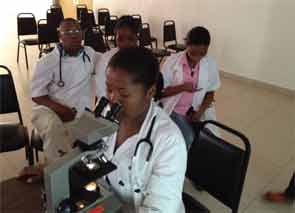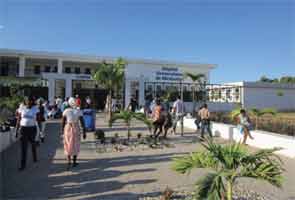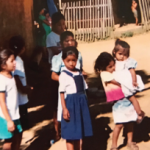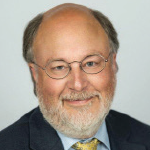

A desire to serve those in need, irrespective of ability to pay, is a common sentiment among physicians and one of the fundamental rewards in the practice of medicine. Achieving this goal in the U.S. is facilitated by a healthcare system that, despite its many flaws, usually enables a physician to care for these individuals.
A level of access to medical care comparable to that existing in the U.S. is not present in most countries designated as being in the third world, a term used to describe underdeveloped countries as defined by poverty level. The United Nations has recently chosen to use the term least developed countries, and it has listed 53 countries (38 in Africa, 14 in Asia and one in the Americas) in this category. A recent review of the current membership of the ACR revealed that, with the exception of two rheumatologists in Nairobi, Kenya, there are no rheumatologists listed in any of the 53 least developed countries, nor in the 50 lowest ranked countries in the world, ranked by either per capita income or life expectancy.
Within the past few months, I have had the opportunity to work as a volunteer physician in Haiti, the only country in the Americas listed in the least developed countries category. Based on this experience, I would like to address the questions: What is the potential role of a rheumatologist in an undeveloped country? What can realistically be accomplished by a rheumatologist working as a volunteer on a short-term basis?

The Volunteer
Traditionally, the role of a volunteer physician in an underserved country has been limited to one of three areas:
- The provision of surgical care to permanently correct a condition. Examples would be total joint arthroplasty (e.g., Operation Walk) and plastic repair of cleft palates (e.g., Operation Smile);
- Interventions in the field of infectious disease involving epidemiology, diagnosis and treatment, both therapeutic and preventative; and
- Short-term relief programs, such as the Red Cross and Médecins Sans Frontières, which respond to catastrophic events, such as an earthquake or a war.
Volunteers are drawn to these activities because of the opportunity to provide an acute intervention with results that are often immediately obvious to those involved.
Few examples of an intervention by a volunteer physician group focusing on a chronic disease exist. One exception has been the treatment of HIV and multidrug-resistant tuberculosis by the organization Partners in Health (PIH). Both of these highly successful programs have included disparate populations in multiple countries, including Haiti, Rwanda, Peru, Russia, Lesotho and Malawi. The programs are based on a system of care that involved the local population and could be sustained after the volunteer left.


